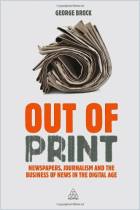Únase a getAbstract para acceder al resumen.

Únase a getAbstract para acceder al resumen.
Anya Schiffrin
Media Capture
How Money, Digital Platforms, and Governments Control the News
Columbia UP, 2021
¿De qué se trata?
Independent journalism has waned worldwide as widespread “media capture” skews the news.
Recommendation
Columbia University media expert Anya Schiffrin identifies tax-based solutions and philanthropic donations as two ways to revive independent journalism, which has waned worldwide as widespread “media capture” – government and corporate influence over the media – skews the news. The new media’s vulnerability to capture-and-control ownership has increased because journalism’s commercial business model in many ways no longer functions. Financial support from Google, Facebook and other tech titans is an unlikely fix; these giants do not produce content, they capture companies that do.
Summary
About the Author
Anya Schiffrin, director of the technology, media and communications specialization in the School of International and Public Affairs at Columbia University, is the editor of African Muckraking: 75 Years of African Investigative Journalism and Global Muckraking: 100 Years of Investigative Reporting from Around the World.




















Comment on this summary